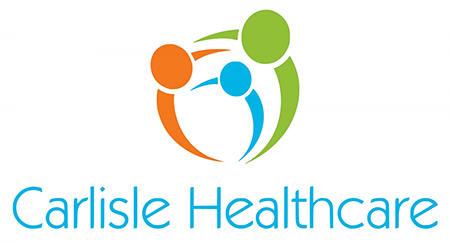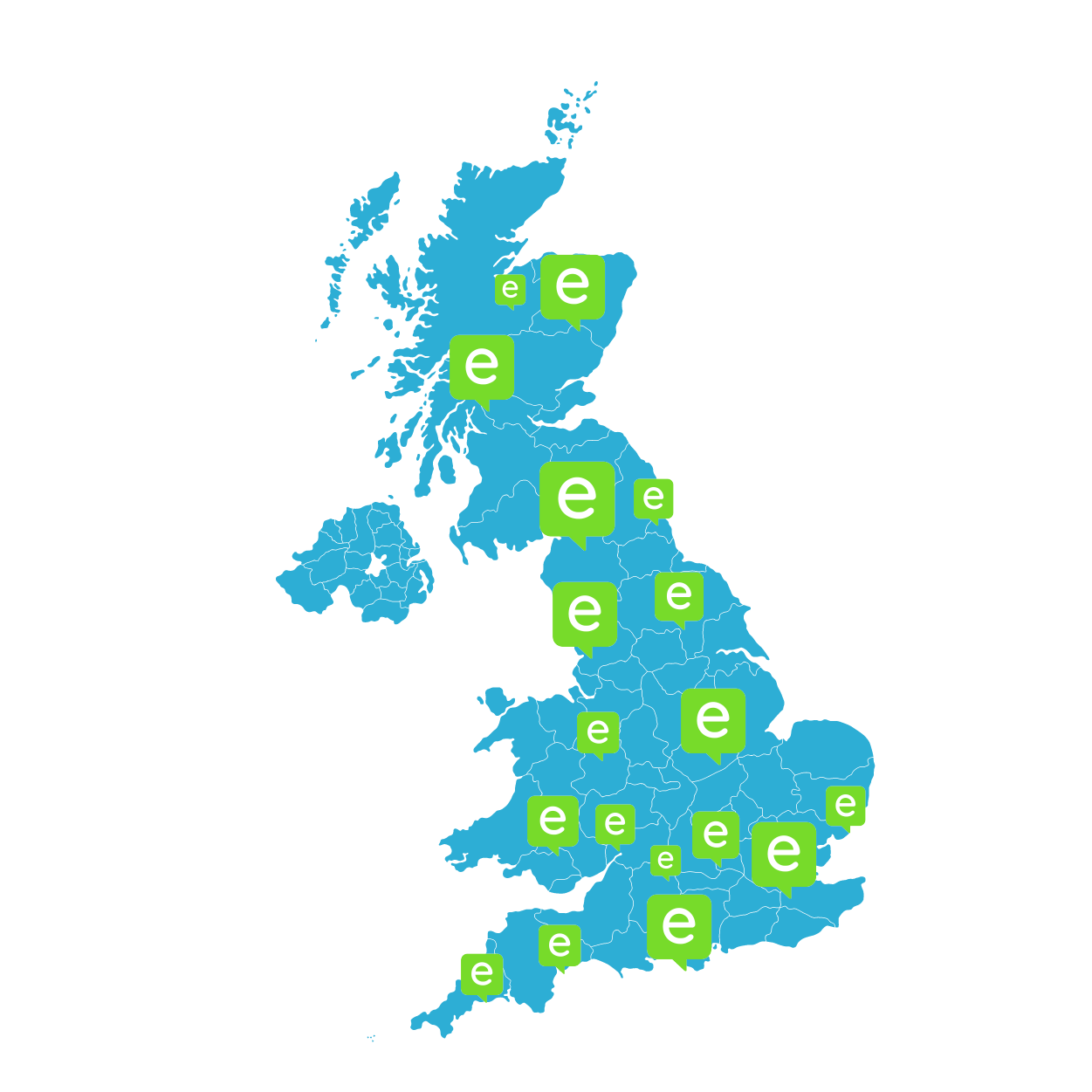Carlisle Healthcare
Key stats

- Patient List size: 37,000
- Launched: December 2019
- Model: Total Triage
Summary:
High call volumes from patients wanting appointments became a huge challenge for Carlisle Healthcare following a practice merger in 2016. With a range of non-medical healthcare professionals and a falling number of GPs on staff, the practice soon struggled to keep up with demand. After not finding success with their first online consultation provider, the practice started using eConsult in December 2019.
We spoke to lead GP Dr Robert Westgate about how they have started to use eConsult as their main non-urgent access channel for patient queries, the importance of their reception team and how it’s added value within their practice team.
Following a practice merger in 2016, Carlisle Healthcare implemented a ‘doctor-lite’ model of care in response to falling GP numbers. They are a training practice and employ a range of non-medical health professionals (e.g. advanced clinical practitioners), to deliver core primary care services as well as working collaboratively with other providers. However, the practice has struggled with being able to balance access and triage against the increasing volumes of telephone traffic coming into the practice.
The practice decided to look into alternative communication channels for patients to contact the practice that would allow them to respond in a ‘meaningful way’. In particular, the practice was hoping to avoid the ‘competition’ of the eight o’clock morning telephone rush and to reduce congestion on the telephone lines. The practice previously tried an online consultation system but didn’t promote it heavily to patients and found it didn’t fit their requirements, so they started to look for other platforms to use.
“We tried a different online consultation platform for a year but found that the message that came through from patients was unstructured and didn’t provide sufficient information or safety to allow the receiving clinician to make an informed decision. It was difficult to understand what the patient’s ideas, concerns and expectations were, so we started looking for new options. eConsult looked like the best offering to fulfil what we were looking for and it’s had a huge impact on how we think about online services now.”
Dr Robert Westgate
Introducing eConsult for online consultations
When the practice decided to move to eConsult, they looked for local and regional support, as well as getting help from the Transformation team. The practice took advantage of available resources, such as administrative and clinical training, to get everyone familiar with the product. They also found speaking to other practices and sharing their learning helped them to implement eConsult as smoothly as possible.
Initially some members of the practice were concerned about ‘opening the floodgates’ and so they tried a ‘soft launch’ of the platform in December 2019. Usage of eConsult quickly gained momentum and seemed to be working well, with the practice continually improving processes as they gained experience.
Although the practice had been very clear that they wanted the introduction of eConsult to be very patient-focused, they realised that patients were continuing to use the telephone because the practice had not actively advertised it to patients. The practice wanted to get the best value out of eConsult, and so with help from the eConsult team, they looked closely at information that could help increase awareness and utilisation of eConsult among their patients.
The practice decided on their processes from the beginning but amended them as necessary. The reception team very much became their front-line in terms of spreading the messaging and managing eConsults and their route into the practice.
These are some of the processes they’ve implemented for their reception team:
- Reception staff process all the eConsults that come into the practice on a rota basis, so that everyone gains experience, filtering requests in the same way that they would with telephone requests.
- The main aim is to put the eConsults on the right pathway based on the patient’s needs, meaning if a GP doesn’t need to see it, they won’t see it.
- The reception team code information from the eConsult into the patient’s record to improve the quality of the record as much as possible.
“That initial filtering by the reception team is, I think, essential to get value from the process. Our principle is that we only pass to the clinician the things that need a clinical answer. Our reception team are sometimes answering the phone, sometimes answering an eConsult, but they’re applying the same skills. Their role is to workflow activity through the practice into existing teams, existing processes, in the same way that they would be if they were answering a patient query on the phone.”
Dr Robert Westgate
Getting the right skill mix and the right capacity to meet the needs of their patient population was one of the key drivers for using eConsult. For that reason, they decided to monitor the outcomes of eConsult requests to try to shape and adjust the workforce provision.
- The practice implemented a protocol within their clinical system which, on the conclusion of the online consultation, prompts them to answer a series of questions around what they had done with the request (e.g. information sent to the patient, patient signposted to service, Med3 issued, patient invited to see a nurse practitioner for a face-to-face appointment etc).
- This has provided the practice with rich data to help them plan their capacity and workforce, shaping their service with confidence. It has shown the practice that practitioners actioning eConsults have different skills, risks and attitudes.
- On average they have a remote closure rate for eConsults of 68%, this sometimes includes a telephone call or an SMS conversation with the patient to clarify details of the request. About 12% end up as face-to-face appointments with a GP and 17% are as face-to-face appointments with an advanced nurse practitioner.
- A small proportion of patients come in for other needs, e.g., phlebotomy or other in-house investigations (often pending a follow up clinical review) or can be referred to other providers for musculoskeletal assessment or primary care mental health support.
Thinking of moving to a ‘total triage’ model? Get in touch with our team
Realising the benefits of total triage
With their initial soft launch, the practice didn’t notice the desired impact on the telephone lines, which continued to have high volumes of calls coming in. In January 2020, the practice started with SMS marketing campaigns to patients and within moments saw an uplift in activity, with eConsults increasingly coming into the practice whenever they reminded patients that it existed. Then COVID-19 hit in March 2020:
“By the time COVID-19 hit we were running a hybrid access system – using directly bookable face to face appointments as well as telephone and on-line triage. We’d already done some promotion around online consultations and had started to see an impact on increased on-line activity as well as improvements to telephone access because of less telephone congestion. Then we got a national direction to move to a total triage/invitation only appointment system and we were able to implement that very quickly. It was just doing more of the same but with additional publicity and some realigning of our resources to respond to different needs. In addition, ‘total triage and invitation’ allowed us to offer a needs-based service which gave us greater control over our clinical resource.”
Dr Robert Westgate
Towards the end of March 2020, the practice noticed a big increase in the eConsult activity as they almost entirely switched off the ability for patients to book in face-to-face appointments directly. The practice also noticed that only a small proportion of eConsults required a face-to-face appointment, meaning they became more confident with moving to a largely remote consultation style.
The practice feels that the changes they made to utilise eConsult as a digital front door has allowed them to realise the benefits of a total triage approach; not only to improve patient access but also to get better value out of the clinical resources on the ground. The timing worked to allow them to maintain a very accessible service as others around them struggled to respond to lockdown and a new way of working.
“I think eConsult and online consultations, in general, are a really powerful vehicle for access. But for it to have value it has to become mainstream within a practice. For the past year, about a quarter of our incoming patient activity is coming in through eConsult, another quarter is telephone triage. The final half is by invitation for planned care, be it long term conditions, screening, health promotion and complex care. eConsult is a significant chunk of our access activity – and this adds value. In addition, patient feedback shows that 79% of our patients who have used eConsult are either satisfied or very satisfied with their experience of contacting the practice, with 87% of people using eConsult reporting that they would have phoned the practice or requested an appointment had eConsult not been available.”
Dr Robert Westgate
As they move forward and the available workforce both within the practice and their Primary Care Network grows, the practice now feels better able to deliver the services for their patients. A more diverse workforce will give them more options to be able to signpost patients to the right professional with the right skills to be able to meet their needs.
eConsult also empowers their patients to more carefully think about what they want to achieve from the consultation, and to present that information in the most effective way for the clinician to be able to make decisions about their management. This is something they want to continue encouraging.
“Our clinicians enjoy it and we see it having the potential to add real value in what is clearly a very resource-limited primary care environment. I think one of the strengths of eConsult is that it allows people to prepare for their consultation. It provides the opportunity for people to think ‘Actually, what is it I need? What am I trying to describe?” Because of the structure, eConsult allows people to prepare, to think, and to really spell out what it is they’re concerned about. That is then presented to the clinician in a structured way to allow the clinician to make a safe informed decision about ongoing care.”
Dr Robert Westgate
